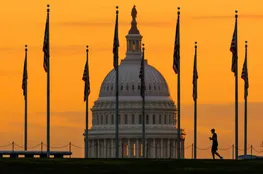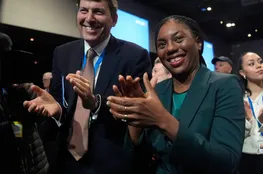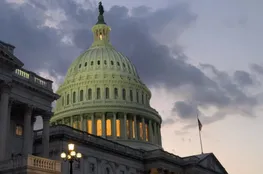The popular "Shark Tank" personalities, Mark Cuban and Kevin O'Leary, have clashed over the proposed imposition of hefty tariffs on Chinese imports. Kevin O'Leary, also famous as 'Mr. Wonderful,' has voiced strong objections against China's trade tactics. He expressed his frustration publicly on social media platform X, previously known as Twitter. O'Leary advocates for decisive measures, suggesting that tariffs on Chinese products should be raised to an astounding 400%. According to him, this level of tariff is essential to counteract China's longstanding unfair business tactics. He criticized China's trade practices, highlighting a personal experience of dealings that span nearly two decades, where he found the playing field to be heavily skewed against foreign enterprises.
In contrast, Mark Cuban countered O'Leary's tariff proposal, arguing that such extreme tariffs could inflict severe repercussions on U.S. businesses. Cuban, who is equally influential and a co-star on "Shark Tank," raised concerns about the real-world implications of elevated tariffs, referencing a Deutsche Bank report and a Goldman Sachs survey. The findings suggest that U.S. businesses, in preparing for the impact of China tariffs, were forced to cut costs, delay necessary investments, and increase expenses to stockpile inventory. This defensive strategy was evident back in 2019 during previous tariff negotiations, which Cuban highlighted in his counterargument.
The disagreement between Cuban and O'Leary comes against the backdrop of an ongoing debate concerning tariffs on Chinese imports. Recently, the Biden administration intensified tariffs on Chinese goods, causing a downturn in stocks for major Chinese companies like Alibaba and JD.com. The issue of tariffs remains divisive, as former President Donald Trump endorsed imposing a 200% tariff on cars imported from China and Mexico, ostensibly to safeguard American automotive job sectors. Trump's tariff approach has been met with criticism, including from vice presidential nominee Kamala Harris, who labeled it as detrimental and coined it the "Trump sales tax" in a recent presidential debate. Harris went so far as to accuse Trump's administration of exacerbating trade imbalances and initiating trade conflicts.
As this ongoing debate continues, tensions within the U.S. political and business landscapes are palpable. This situation is exacerbated by impending technology stock movements predicted by financial strategists. Analysts suggest that the performance of tech stocks may provide some economic buoyancy, even with possible recessionary pressures looming by 2025. While O'Leary and Cuban maintain their sharp differences in strategy over trade policies, their public discord reflects broader tensions and complexities in international trade relations.
























